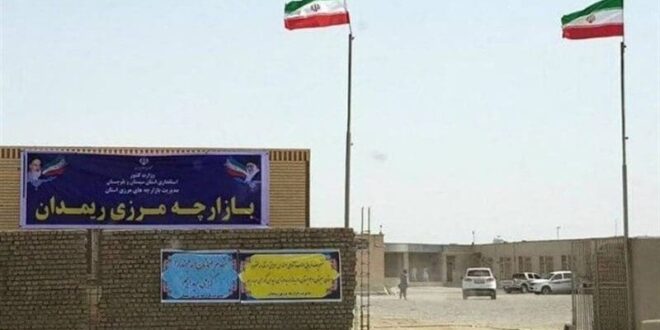Iran said it is shutting its vast borders with neighboring Afghanistan and Pakistan to increase security after the twin bombing that killed at least 89 people in the southeastern city of Kerman on January 3.
The Iran Students News Agency (ISNA) quoted Interior Minister Ahmad Vahidi as saying his government was prioritizing border crossings along borders with Afghanistan and Pakistan, both of which range for almost 1,000 kilometers.
The bombings in Kerman targeted people attending ceremonies to mark the fourth anniversary of the assassination of the late military commander General Qasem Soleimani, who was assassinated in Iraq in 2020 by a U.S. drone.
The Islamic State (IS) extremist group has claimed responsibility for the blasts saying that two of its members detonated explosive belts in the crowd that had gathered for Soleimani’s memorial. IS has in the past claimed responsibility for some terrorist attacks in Iran.
On January 5, Vahidi told state TV that the country’s intelligence agencies “have found very good clues regarding elements involved in the terrorist explosions in Kerman.”
He said that a number “of those who had a role in this incident have been arrested,” but did not elaborate.
Afghanistan’s Taliban-led government and Pakistan’s Ministry of Foreign Affairs have yet to react to the announcement of the border closures. Both condemned the attack on January 3.
In the past, Tehran has accused both countries of allowing illegal immigrants, and sometimes terrorists, to slip across the border and harming Iran’s national security.
“Iran is indirectly accusing Afghanistan by insinuating that terrorists come from that country,” Aziz Ma’araj, a former Afghan diplomat who had served in Tehran, told RFE/RL’s Radio Azadi.
Ahmad Khan Andar, an Afghan security expert, warned against blocking landlocked Afghanistan’s borders.
“The two countries should jointly fight terrorists along their shared border,” he told Radio Azadi.
In Afghanistan, the Taliban has been fighting against the Islamic State-Khorasan (IS-K), a local branch of IS, since it first emerged in 2015.
Since seizing power in August 2021, the Taliban has tried to launch an intense crackdown on the IS-K, but many analysts say the mountainous border regions remain porous and it is far from eliminating the hard-line Salafist group that considers Shi’ites apostates.
Iran and Afghanistan’s northern central Asia neighbors and Russia consider the IS and IS-K to be a significant threat to security.
 Eurasia Press & News
Eurasia Press & News



